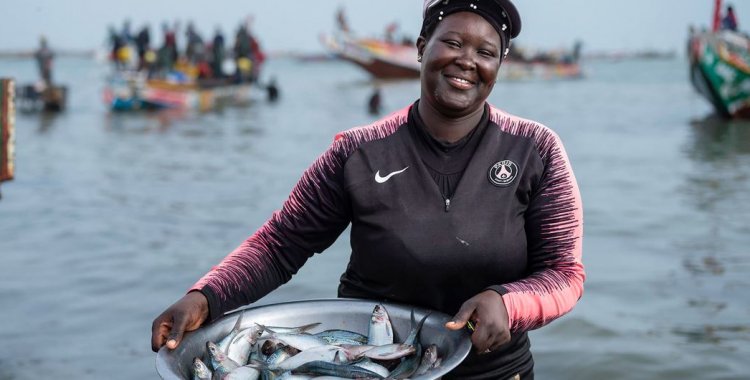Cármen Neto was speaking to the press, at the end of the IV conference of the magazine Economia & Mercado on Blue Economy, which served for the "Assessment of the National Strategy for the Sea, Two Years Later".
According to the minister, the State loses 20 billion kwanzas every month through illegal, unregulated and unreported fishing, not counting the fish that enter the circuit "in the wrong way".
In his closing speech at the conference, Cármen Neto admitted that fishing production for domestic consumption is still insufficient, calling for the promotion of aquaculture to overcome this challenge.
The holder of the Fish and Marine Resources portfolio stressed that the Government is increasing strong public policies, to allow aquaculturists to triple their production, which has already occurred in 2023.
"We think we can do it this year too, so that we can actually eat", said the minister, also pointing out the need to change the Angolan "palate", identifying, in addition to horse mackerel, new types of fish for consumption and in this way also reducing "the pressure on resources".
Aquaculture in Angola already accounts for more than 50 percent of annual fish production, mostly used for human consumption, according to data from the Food and Agriculture Organization of the United Nations (FAO) this year.
The national director of Sea Affairs and Marine Resources, Tânia Barreto, said, during the round table, that, in 2023, aquaculture production reached 10 thousand tons, and this year it is expected to reach close to 15 thousand tons .
According to the minister, supervision is being structured from an operational point of view, to know who will carry it out, and from a tactical point of view, who has to supervise and how to do it, as well as from a policy point of view. of governance.
In the last quarter, the contribution of the fishing sector to the country's revenue fell compared to the same period in 2023, but, according to the minister, it is expected that by the end of the year it will reach around 4 percent.
Regarding advances in the blue economy, the minister mentioned that there is a multisectoral commission for sea affairs, coordinated by the Minister of State for Economic Coordination, José de Lima Massano, which will allow all sea matters to be discussed and can align the public policies necessary for the blue economy.
During the debates, the speakers also expressed concern about financing for the sector, which is still far from meeting investment needs.
Speaking to the press, the vice-president for industrial fishing of the Industrial, Semi-industrial and Artisanal Fishing Association of Luanda (Apasil), António Gama, highlighted that fishing activity remained on the banks' red line for a long time, for non-compliance.
António Gama said that, with the creation of some programs, such as Planapesca, some foreign banks are open to financing projects, but with the requirement of guarantees, highlighting that some companies in the provinces of Benguela and Namibe have requested financing for the acquisition of vessels .
"In Luanda, investment in fishing by financial institutions has been very small. We are very apprehensive and anxious for some steps to be taken, so that there can be renewal of the fleet, improvement and training of the fleet we have", he highlighted.
The person in charge said that especially the semi-industrial and artisanal fleet is quite old.







